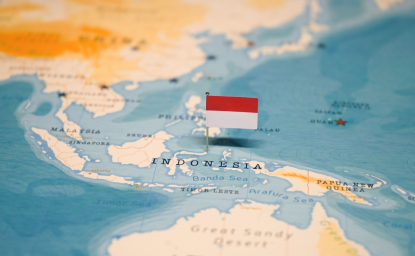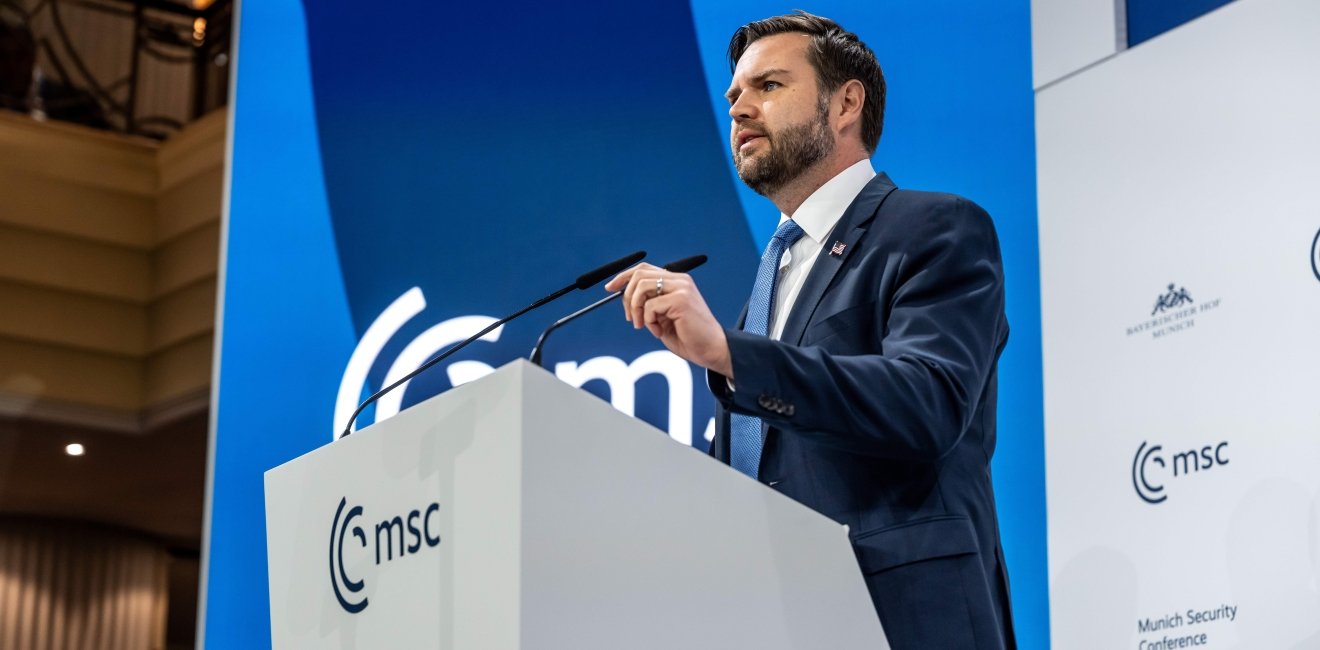My shorthand description of the annual Munich Security Conference (MSC) has long been: “It’s Davos for security wonks.” MSC’s focus is on global security challenges, bringing voices from across the planet to snowy Bavaria in mid-February. Yet these discussions build on a legacy foundation: the relationship between the United States and Europe.
The Conference has often been the site of scolding. A timely review of 60 years of speeches shows just how often the United States has pressed its European allies to spend more—and do more—for their own defense. At the same time, an emphasis on our shared values conveyed a subtext: as transatlantic partners, we stand together.
This weekend’s conference shook the transatlantic foundation. And it was the United States that shook it.
Europeans came prepared for strong (but familiar) criticism on burden sharing. They were ready to show the second Trump administration they had raised their defense expenditure and preparedness significantly. The change was largely due to a new threat assessment after Russia’s invasion of Ukraine. Still, European Commission President Ursula von der Leyen was blunt: Europe need to do even more. While the EU 27 (together) were just about meeting the current 2% NATO target, it wasn’t enough. They needed to target 3%.
Von der Leyen proposed removing EU budgetary constraints on members when it came to defense spending (activating an “escape clause” meant for use in crises). It was both a bold and practical proposal. Von der Leyen stressed Europe was adapting, stepping up, making a difference “immediately.”
In past years, her proposal might have been the headline. Not this time.
US Vice President Vance came on stage after von der Leyen. But his speech was not what Europeans anticipated. For he did not focus primarily on NATO, or 2%, or even Ukraine. Instead, he focused on values.
Vice President Vance told the conference he was worried about “the threat from within”—what he saw as Europe’s retreat from fundamental values it shared with the US. The Vice President had examples: Romania’s decision to annul its recent Presidential election, Sweden’s conviction of a Christian activist, a UK legal decision affecting an abortion rights activist. He said bluntly “In Britain and across Europe, free speech, I fear, is in retreat.”
German policymakers were particularly taken aback by the Vice President’s criticism—especially the specific exclusion at MSC of “lawmakers representing populist parties on both the left and the right.” With Germany’s parliamentary election a week away, many saw this as electoral interference (especially when the Vice President later met with the leader of one of those parties, the Alternative für Deutschland). “If you are running in fear of your own voters, there is nothing America can do for you,” Vance stated. The reaction at MSC was shock.
At this year’s MSC, there’s no doubt about the impact of Vice President Vance’s speech. While it may have been directed as much to a US as to a European audience, its impact was immediate. European policymakers heard it. They leave knowing one thing for sure: grappling with its implications is their task for the foreseeable future.
Germany’s response was immediate. Defense Minister Pistorius was on stage two hours later. Departing from his prepared text, Pistorius found the Vice President’s depiction of European democracy as “not acceptable.” He returned Vance’s bluntness: “We not only know against whom we defend our countries, but also what we defend it for.” On the same stage a day later, German Chancellor Olaf Scholz also pushed back, criticizing “outsiders intervening in our democracy, in our elections.” Scholz’s main electoral challenger—conservative Friedrich Merz—also rejected outside electoral interference.
The aftershock absorbed conference bandwidth that would have focused on Ukraine. In his statement, President Zelensky chose to double down on Europe. He told the Conference that the US Vice President had made clear that “decades of the old relationship between Europe and America are ending.” Saying “I believe in Europe,” Zelensky urged Europe to become self-sufficient, and be united by Ukrainian and European strength. The time had come, he argued, to create an Armed Forces of Europe. It was a feisty stance to take.
But not surprising. For Europeans were also rocked by the message from US Special Envoy for Ukraine and Russia Keith Kellogg that—following President Trump’s conversation with Putin—Europeans would not be a partner at the negotiating table. Kellogg viewed his MSC presence as sufficiently consultative. For Europeans, it wasn’t. A short-fuse gathering in Paris of key (but not all) European leaders on Monday, February 17 was both a pragmatic and symbolic response. But it remains unclear how they will feed their discussion into a process where even Ukraine’s own role is unclear.
As the MSC wrapped up on Sunday, policymakers and pundits were focused on what came next. Would the values debate ultimately prove more divisive than the long-standing defense capabilities gap? Would the structure of a Ukraine post-war settlement mark a return to “spheres of influence”? Where would Europe be in that case? What direction would it take?
In 2007, Vladimir Putin gave a speech to the conference questioning NATO’s expansion and the transatlantic security architecture. In retrospect, many policymakers admit they had underestimated its seriousness. At this year’s MSC, there’s no doubt about the impact of Vice President Vance’s speech. While it may have been directed as much to a US as to a European audience, its impact was immediate. European policymakers heard it. They leave knowing one thing for sure: grappling with its implications is their task for the foreseeable future.
Author


Global Europe Program
The Global Europe Program is focused on Europe’s capabilities, and how it engages on critical global issues. We investigate European approaches to critical global issues. We examine Europe’s relations with Russia and Eurasia, China and the Indo-Pacific, the Middle East and Africa. Our initiatives include “Ukraine in Europe”—an examination of what it will take to make Ukraine’s European future a reality. But we also examine the role of NATO, the European Union and the OSCE, Europe’s energy security, transatlantic trade disputes, and challenges to democracy. The Global Europe Program’s staff, scholars-in-residence, and Global Fellows participate in seminars, policy study groups, and international conferences to provide analytical recommendations to policy makers and the media. Read more

Explore More
Browse Insights & Analysis
The OSCE is a Good Value for America

Israel Escalates Attacks in Gaza: What’s Next?


